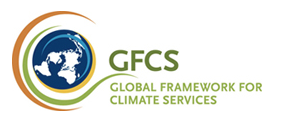The World Meteorological Organization (WMO) hosted a meeting on the implementation coordination of the Global Framework for Climate Services (GFCS), which brought together experts from meteorological and research organizations, donors and service users from the water, food security, health and disaster risk reduction (DRR) sectors.
The meeting aimed to accelerate progress, coordinate plans and identify gaps and stumbling blocks in implementing climate services.
 2 October 2014: The World Meteorological Organization (WMO) hosted a meeting on coordination of implementation of the Global Framework for Climate Services (GFCS). The event brought together experts from meteorological and research organizations, donors and service users from the water, food security, health and disaster risk reduction (DRR) sectors, with the objective of accelerating progress, coordinating plans and identifying gaps and stumbling blocks in implementing climate services.
2 October 2014: The World Meteorological Organization (WMO) hosted a meeting on coordination of implementation of the Global Framework for Climate Services (GFCS). The event brought together experts from meteorological and research organizations, donors and service users from the water, food security, health and disaster risk reduction (DRR) sectors, with the objective of accelerating progress, coordinating plans and identifying gaps and stumbling blocks in implementing climate services.
Approximately 70 countries lack or have inadequate climate services. The GFCS Implementation Plan provides a blueprint for assessing the status of, and needs for, climate services, and calls for the active involvement of partner agencies and various experts and stakeholders.
More specifically, the meeting, which took place from 29 September to 1 October 2014, in Geneva, Switzerland, aimed to: identify ongoing or planned projects and programmes in selected countries; identify specific contributions of WMO technical commissions and programmes and partner agencies; map these contributions against implementation activities, identify gaps and formulate tangible actions; and agree on mechanisms for coordinating and commencing implementation.
The meeting reviewed projects being implemented in 16 countries that are helping to develop and deliver climate services. It also identified national-level challenges, such as: the need for meteorological services to present forecasts in a user-friendly format; downscaling forecasts and providing more information on the onset and distribution of rainfall; access to data; and closer collaboration with communities that have had little contact with meteorologists.
The meeting also highlighted areas where progress has been made, such as: establishing regional climate outlook forums worldwide; launching data rescue initiatives to capture historical records; and partnering among countries, which individually lack capacity, to pool efforts to develop climate services.
While significant financial and technical resources are already being invested, better coordination to pull resources together and ensure that climate services reach the “last – and most difficult – mile” remains a challenge. Thus, meeting participants called for strong national implementation and coordination mechanisms, such as strengthened user-interface platforms at the national and regional levels.
Concluding the meeting, WMO Deputy Secretary-General Jerry Lengoasa stressed the importance of GFCS implementation, noting “we want a user-directed and user-informed initiative to ensure useable climate services.”
The GFCS, led by the WMO, aims to improve climate services over the next ten years to help address natural climate variations and human-induced climate change. It consists of five pillars (the User Interface Platform; the Climate Services Information System; observations and monitoring; research, modeling and prediction; and capacity development) and addresses four priority areas (water, food security, health and DRR). [WMO Press Release] [Meeting Website] [GFCS Website]